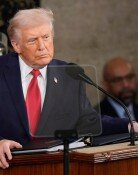Excessive concessions in Korea-US FTA?
Excessive concessions in Korea-US FTA?
Posted November. 18, 2010 13:35,
The U.S. has made excessive demands in additional negotiations for the bilateral free trade agreement with Korea. Washington has urged a further delay in scrapping U.S. tariffs on Korean-made cars and the introduction of a safeguard (emergency import restriction) measure. These constitute demands that effectively nullify the 2007 agreement signed by the two countries and represent a complete revision to the original deal. This will also inevitably entail a revision to the wording in the deals provisions. Washington should stop making unilateral demands that contradict the spirit of the agreement and Seoul should not give concessions too lightly.
The revocation of tariffs is a core element of the deal. The U.S. is discussing the expansion of the Trans-Pacific Pact, an accord one notch higher than a free trade deal, by scrapping trade tariffs in all areas including the agro sector in the Asia-Pacific region. As such, Washingtons demand to delay the scrapping of tariffs is an inconsistent move at best. If tariffs are not lowered, how can the deal be called a free trade agreement?
Through free trade talks in 2007, Korea agreed to immediately scrap its 8-percent tariff on all American cars as soon as the agreement took effect. In contrast, the U.S. decided to scrap tariffs on Korean-made cars with an engine displacement of three liters or lower, but chose to remove the 2.5-percent tariff on cars with an engine of three liters or higher three years thereafter. Washington is also moving to further extend this grace period. If it insists on postponing the scrapping of tariffs, it could potentially derail the agreement itself.
U.S. Commerce Secretary Gary Locke said Tuesday, We will not give up reaching agreement on the free trade deal, adding that high-level negotiators from the two countries will exchange visits over the next several weeks. The U.S. should refrain from making excessive demands that could cause negotiations to collapse and respect the spirit of the deal in negotiations.
Seoul can unlikely afford to keep rejecting revisions to the agreement. Trade Minister Kim Jong-hoon said his side will reflect the expected results of negotiations on the agreement before taking steps to win parliamentary ratification. Some say Korea will conduct negotiations through exchange of benefits by accepting certain U.S. demands while getting concessions from Washington in agriculture and pharmaceuticals. If Seoul makes too many concessions by yielding to Washingtons pressure, the Korean government could face hurdles and delays in getting the deal approved by parliament due to resistance from the main opposition Democratic Party, whose platform is opposition to the agreement, even if Korea and the U.S. reach a final conclusion. If other free trade deals including that between Korea and the European Union take effect before the Korea-U.S. agreement, Seoul and Washington both stand to suffer losses.




![[단독]폴란드, 韓 해군 최초 잠수함 ‘장보고함’ 무상 양도 안받기로](https://dimg.donga.com/c/138/175/90/1/wps/NEWS/IMAGE/2026/02/27/133437397.1.jpg)


